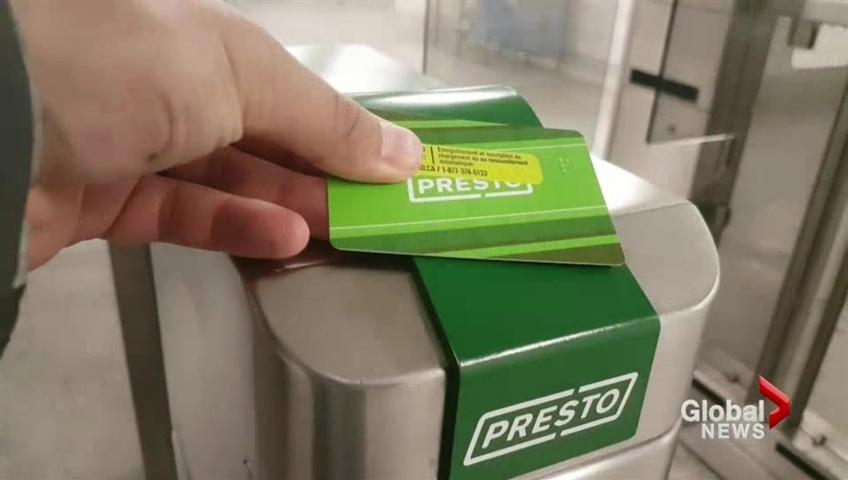TORONTO – As the transit agency in Canada’s most populous city prepares to do away with its decades-old payment system, the union representing transit workers is asking the Ontario government to step in and fix what it describes as faulty technology in the higher-tech replacement.

December marks the last month that Toronto’s commuters will be able to use Metropasses on the TTC as the network of buses, streetcars and subways switches over to Presto, an electronic tap-card payment system used mostly in southern Ontario. In mid-2019, transit tickets and tokens will also be phased out.
But the Amalgamated Transit Union Local 113 has sent a letter to Premier Doug Ford asking that the government take “immediate and urgent action” to address what it sees as an unreliable system, whose machines regularly break down.
“We want (the government) to address the fact that the Presto system has failed,” said union spokesman Kevin Morton. “It’s just a debacle.”
He said the union believes the TTC won’t be able to handle the influx of Presto users as the card readers regularly fail and take too long to repair, which he said could also lead to a loss of revenue.
The province did not immediately respond to a request for comment on the letter.
But Anne Marie Aikins, spokeswoman for Metrolinx, which oversees Presto, said the reliability rate for card readers on buses and streetcars is averaging 98 to 99 per cent each week.

Get breaking National news
“We are very confident that Presto is ready for the transition away from Metropasses,” Aikins wrote in an email.
The TTC has called the Metropass a “mainstay of TTC fare payment for nearly 40 years and a regular fixture in the lives and wallets of nearly 300,000 Torontonians every month.”
More than 78 million of the monthly passes have been sold since they were introduced in 1980 for a cost of $26. Today, they cost nearly $150, and after Dec. 31, monthly transit passes will only be available through Presto.
The TTC began offering Presto as a payment method in 2011, and TTC spokeswoman Heather Brown said more payment options such as the monthly pass have become available through Presto over the past few years.
In 2017, the TTC had about 1.7 million customers each weekday, according to to transit agency’s website. Aikins said there are about about 1.3 million Presto card holders who use the TTC and approximtely 800,000 taps on card readers per day.
Brown said the TTC will be preparing for the increase in Presto users by having more transit workers present at Presto fare vending machines to help commuters. She said maintenance workers will also be on hand to fix broken readers “within a reasonable amount of time.”
Brown said Presto readers are mostly fixed within 24 hours. She said buses and streetcars have two readers, and if both of them are down, TTC riders are told to pay at their destination.
But Morton said he is concerned that Presto readers breaking down means it will make it easier for commuters to evade paying the fare.
He said leading up to the union sending the letter to the province, a memo was sent to its members regarding the Presto transition. Morton said the union received “hundreds” of responses from members citing concerns of commuters not being able to pay because readers are broken.
WATCH: Toronto’s public transit system faces funding, governance challenges

In the union’s letter to Ford, a number of anonymous TTC workers are quoted stating that the readers fail daily and sometimes take days to repair.
Morton said he predicts the TTC is going to lose “a fortune in revenue” as commuters can avoid paying the fare by entering the back of a bus or streetcar and not tapping the Presto reader. He said if a TTC rider is caught and fined for not paying, he claims it will be easier for that person to fight the ticket in court by arguing that the Presto reader was broken.
Morton added that a loss in revenue can easily be mistaken for a loss of ridership.
“It’s a joke,” he said. “Ridership is not down – paid ridership is down.”
Brown said if TTC commuters are caught committing fare evasion, they could be fined up to $425.







Comments